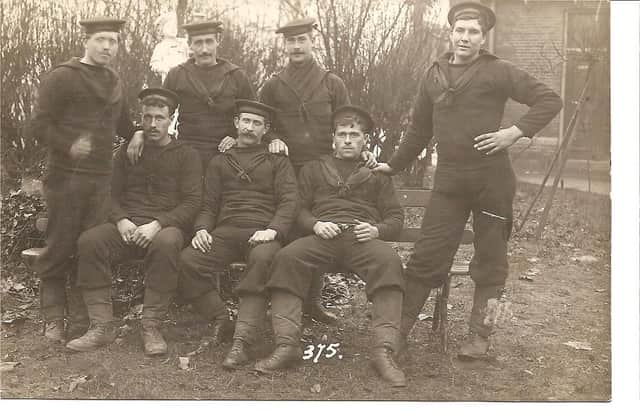The islanders who became a sightseeing attraction in a Dutch war camp


Around 20 men from Bernera and North Tolsta on Lewis – many brothers, cousins and neighbours - were interned in neutral Holland after serving for just four days during World War One.
They were held in a camp known as Timbertown, or Englische Kamp, at Gronigbern for four years until Armistice fell.
Advertisement
Hide AdAdvertisement
Hide AdThe men signed up as Royal Navy Reservists as part of a government scheme to help fund a nurse on Lewis, with the retainer fee to support her employment while creating a readily available fighting force that could be mobilised at any time.
Dave Roberts, in research for Hebridean Connections archive, said: “Many Uig men over the age of eighteen willingly joined up.
"On 5 August 1914 the postman delivered buff-coloured envelopes to all the reservists. War had been declared. There was no reluctance to answer the mobilisation call.”
Straight away, the men found themselves out of their depth. Trained to crew warships and handle large naval guns, the men instead found themselves meeting the demad for infantrymen, with each issued a rifle and ten rounds of ammunition.
On 5 October 1914, they were transported to Antwerp to defend the strategic port from German advance.
Mr Roberts said “The ill-equipped and inadequately trained Naval Brigades had no chance and held out for less than three days.”
Around 3,500 men managed to board trains and escape. But First Naval Brigade, which the islanders served, remained unaware of the order to fall back with valuable time lost in their delayed retreat.
By the time they reached St Niklass on foot on October 9, they were almost completely surrounded by enemy troops, Mr Roberts said.
Advertisement
Hide AdAdvertisement
Hide AdThe decision was taken to cross the border into Holland, surrender to the Dutch Army and become internees in a neutral country.
The internment camp created great interest in the surrounding community.
Mr Roberts said: “On Sunday afternoons, the "Englische Kamp" had become a sightseeing attraction, and townsfolk came to gawp through the fence at the sailors. The inmates were a novelty, and at first many of them felt like monkeys in a zoo.”
Football matches and concerts were put on for entertainment, with work and study also allowed. Shore leave and date nights with local women were also permitted in time.
Mr Roberts added: "Astonishingly, by 1916 home leave was being permitted. The rule was that if anyone failed to return from leave, then the privilege would be withdrawn from everyone. Needless to say... no one broke the rule.”
Time wore on, the Armistice was eventually signed with the men allowed to return home for good.
Mr Roberts said: "They had survived a war that had killed 57 out of the 312 Uigeachs who went to fight for King and Country. They had returned fairly unscathed or damaged by their experiences. “
The men were accused of "sleeping in Holland for four years".
Advertisement
Hide AdAdvertisement
Hide Ad“They were not cowards. In fact it must have taken great courage for a trained sailor with only a rifle and ten rounds of ammunition, to face the onslaught of a well-prepared invading army.” Mr Roberts said.